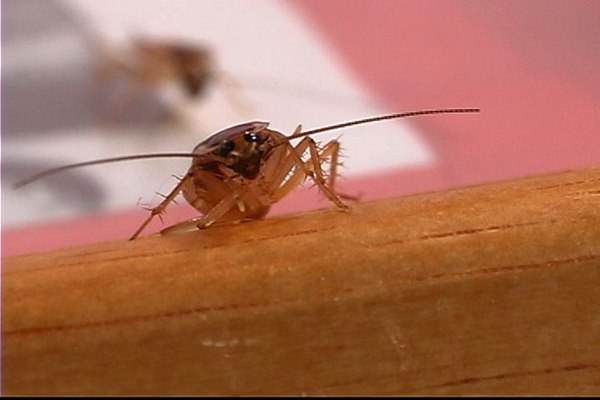How To Get Rid Of Roaches
Nothing brings shudder like unexpectedly spotting a skittering cockroach as you turn after dark on a kitchen lamp. Despite their reputation as hard to kill, roaches can be managed with methodological approach and the right items. Read on to learn the best ways to get rid of roaches and keep them out of your house.
Safety: Always Follow Manufactuer’S Instructions For Safe Use Of Any Pesticide.
Shop Roach Control Now
Insect trapping Bait stations and other home pest control to kill cockroaches or at least repel roaches. Place roach baits and traps in troubled areas around trash cans, under the sink, by doorways, and more. Tip: While finding natural products with these active ingredients may aid in roach prevention, a large-scale infestation can involve more stringent roach killers. Safety: Do not use DE or boric acid on counters, uncovered, drafty areas or anywhere food is prepared. Apply thin layers and wipe any residue immediately.
1. Boric Acid
Boric acid dehydrate roaches by destroying their digestive system and outer exoskeleton, killing them. Boric acid can be placed on a jar lid and placed around your home, or sprayed directly under and behind cabinets. You can also combine equal parts of boric acid, flour, and sugar and make a dough to feed on roaches around your house. The flour and sugar attracts the roaches and kills them after they eat it. Boric acid can be harmful to pets and kids, so don’t use it if you have one in your house.
Natural Cockroach Repellent: What Works And What Doesn’T
CockroachFacts is a participant in the Amazon Services LLC Associates Network, an affiliate advertisement program designed to provide a way for sites to receive advertising and connect to Amazon.com payments. Are you serious about getting rid of cockroaches, but don’t want to use pesticides and other dangerous chemicals?
The internet is full of DIY strategies using plants, spices, herbs and more to repel roaches or compel them to leave. Do any of them work? Yes! Yes! We have the rundown on all-natural cockroach repellent – which works, and which doesn’t. Are you ready? Hint: Need more natural ways to repel cockroaches? Try these Basic Roaches Oils, and How to Keep Roaches Away Guides. You may also want to learn to kill roaches with this Natural Roach Killer guide.
What Do Cockroaches Hate?
Given the reputation of cockroaches living almost everywhere and eating almost everything, there are a few things they can’t stand. Some animals are temperature-consuming, some are humidity-consuming, and some just hate-lights. But you don’t want to freeze at home and run fans in every room just to make the cockroaches miserable.
And be careful about using lights some roaches will run away while others will love them Fortunately, there are more than a few out there for those looking for an all-natural roach repellent, and almost all include one thing: smell.
Cypress Oil & Peppermint Oil
According to others, peppermint oil and cypress oil will keep cockroaches away. Like most of these essential oils, their efficacy is founded on anecdotal data, not scientific research. However, some people report success with water-diluted peppermint or cypress oil sprays – and some empirical evidence supports that.
At least, there are worse scents than cypress and peppermint to fill your home when exploring these methods. Each of these essential oils gives off a new, invigorating odor that will help ease your mind, even if it does not turn out to be fully effective against your roach problem.
Can You Repel Roaches With Fruits And Vegetables?
Majestic Pure Peppermint Oil, Pure and Natural, Peppermint Oil, 4 fl. Oz. Oz.
Can You Scare Roaches Away?
You may have heard reports that lemons are a great natural repellent cockroach. Many people encourage homeowners to scrub kitchens and bathrooms with lemon juice and water. This can help contain roaches, however, because it means more thorough cleaning, not necessarily because it means they’re dissuaded by smell. Others think that crushed or ground lemon peels could repel roaches in high-risk areas. Again, the lemon-scented mixture might not be useful without the regular cleaning.
Best Roach Repellents
You may wonder if noise or lights will scare off roaches. Well, that’s a simple yes, you’re terrified! That’s why they’re freezing or running (or flying!) away as soon as you flick on a light and see them. Unfortunately, you won’t scare them out of your building.
If they’ve become relaxed, they’ll only hide in cupboards, holes, or crevices until it’s safe to get out again and keep looking for food. There’s another product group you may have seen ads for: “ultrasonic pest repellers” or other sound machines. Although whether these are a “natural” roach deterrent may be debated, they appear to function and do so without chemicals. Unfortunately, most studies so far suggests that these are not effective ways to keep out cockroaches, mice or other pests.
How To Choose The Right Roach Repellent For Your Home
Cockroaches are some of the most difficult pests to bring around. This is because cockroaches have built up active immunity to most insecticides and their shell helps them to withstand a number of other methods of extermination. While cockroaches are hard to get rid of, it’s not impossible to get them out of your life for good. In this post, we look at 2019’s top 5 best roach repellents. They’re known to do the trick.
Strategically Place Catnip
If you have roaches in your house, it doesn’t mean you need to get down everyday on your hands and knees and start scrubbing-it may be a simple freak accident. Maybe your base has a small crack, and a scent draws them into your house. We don’t really know how we get home bugs, all we know is that when they come in, we want them out. Cockroaches hold a range of diseases, so you don’t want them to hang in your home, making your family sick.
If they come into contact with food, food poisoning and other issues like asthma may occur. The type of repellent you select depends heavily on your condition and what you want to achieve. There are repellents for large and small infestations, so you want to choose the right one.
Sprinkle repellent If you have an infestation and know exactly where it is, a spray repellent is ideal because it kills the roaches on contact and it does the job very quickly. It’s also straightforward for the other roaches to get bitten only because they’re next to one that’s been sprayed. Roaches tend to feed on other roaches’ dead carcasses, so it’s a perfect way to kill any remaining roaches.
The only problem with this is to know exactly where the infestation works. You can’t just spray at home and expect roaches to stay away. Strategically Catnip That’s right, your feline friend’s favorite herb is a perfect roach repellent. Roaches are susceptible to nepetalactone, the active ingredient in catnip.
(Catnip is also a mint family member, so it should come as no surprise!) Placing small catnip satchels around your home where you’ve seen roaches should keep them at bay. Catnip won’t kill roaches, but it’s a nice choice to keep them from returning after you got rid of them. Save it
Spray Essential Oils
Research has found some essential oils, particularly peppermint oil, to repell roaches. Peppermint oil can also be used as a natural insecticide, but not as diatomaceous earth. Leaving mint oil out or spritzing it around will not destroy roaches in its course, but will keep them away. But if you spray a peppermint oil on a roach when you see one, commercial roach sprays may be an easy, natural alternative.
To repel roaches, try mixing two parts of water with one part of white vinegar and 10 drops of peppermint oil into a spray bottle and spray it around your apartment’s affected areas. Impact repellence Both essential oils tested were highly repellent against brown-banded cockroach at the prepared concentrations ( Table 2 ). Evaluations of repellent operation relied on essential oil and concentration.
Compared to the control group, the highest and lowest repellent effects were observed in oregano oil and eucalyptus oil. The repellent effect of oregano oil at various concentrations ranged from 96.5 to 99.1%, which were not substantially different together (P>0.05), although the maximum repellence (99.1%) was found at a lower concentration of 2.5%. ( Table 2 ).
In the oregano oil repellence test, nearly all the released cockroaches were concentrated in the untreated area at the same place and were not close to the treated area even after a week. Concluding The best natural ways to get rid of roaches are the tried and tested methods: extensive washing, natural insecticides (such as diatomaceous soil and boric acid), and a call to the nearest pest control business.
Essential oils, herbs, and spices won’t destroy roaches, and while they may be able to discourage them from some places, they certainly won’t persuade them to go anywhere else where you’re not their roommate. But if you want to combat these bugs yourself, by reading our other guides and articles you can learn more about the specifics of each cockroach species, their eggs, their diets and more. Happy luck! Sources:
Sources Yigzaw, Erika (2017) Green Cleaning: 10 Naturally Repelling Oils. American Healthcare College. From https://info.achs.edu/blog/green-cleaning-repel-insects Appel, G-Arthur. Oil repellence and toxicity to American and German cockroaches. Auburn School of Entomology and Plant Pathology. From https://scentsoc.org/Volumes/JAUE/v18/149.pdf Banish, Daizy et al. (2008) Eucalyptus Basic Pesticide Oil. Land Ecology, Management. From https://www.sciencedirect.com/article/abs/pii/S0378112708006166? Via 3Dihub%
Wagers
Pandan Leaf is an effective cockroach repellent? Rentokil. Rentokil. Retrieved from https://www.rentokil.com.sg/my-pest-control-quick-tips/pest-myths/myth-busted-is-pandan-leaf-repellent/ Concluding Since S. Longipalpa can be found in all parts of buildings such as clothes lockers, beds, furniture and cabinets and that ootheca sticks in hard-to-reach or obscure areas, chemical insecticide spraying in such places is difficult and undesirable to people.
Using essential oils, however, is a safe choice for indoor application against cockroaches due to less human toxicity and no harmful residues. Oregano oil demonstrated great resistance to S. Longipalpa can be recommended as a possible repellent compound for further study on a wider scale and under field conditions.
Contact and fumigant toxicity of the five selected essential oils have been considerable, but additional study is needed for practical application and favorable formulation of them against the brown-banded cockroach and other cockroach species.








:fill(white)











